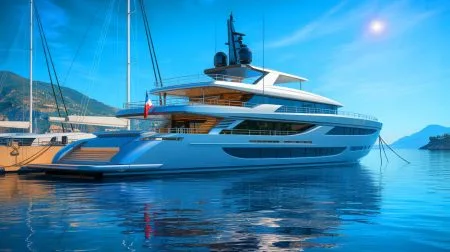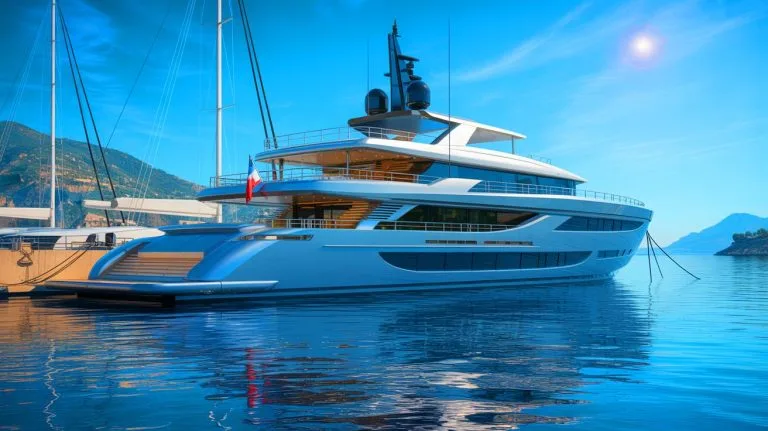| IN A NUTSHELL |
|
Mark Zuckerberg’s decision to dock his $300 million yacht, Launchpad, at the renowned La Ciotat shipyard in France has sparked a debate on luxury, environmental responsibility, and economic interests. The yacht’s recent voyages have left a significant ecological footprint, intensifying discussions about the responsibility of billionaires in the context of climate change. As the shipyard welcomes this colossal vessel, questions arise about the balance between economic gains and environmental sustainability. The presence of such luxury yachts in environmentally sensitive areas highlights the growing tension between wealth and ecological awareness.
A Luxurious Welcome for a Yacht With a Disastrous Carbon Footprint
The Côte d’Azur, a haven for maritime opulence, is set to host the Launchpad, a yacht owned by Meta CEO Mark Zuckerberg. Valued at nearly $300 million, the yacht’s visit to the La Ciotat shipyard underscores the region’s reputation for catering to high-profile clients with discreet and premium services. The shipyard, already known for hosting Jeff Bezos’ yacht, Koru, offers rare technical expertise that attracts the world’s wealthiest.
Despite the economic benefits, the environmental impact of such vessels cannot be ignored. In less than a year, the Launchpad consumed two million liters of diesel and emitted 5,300 tons of CO₂, equivalent to the annual emissions of over two thousand cars. This stark figure highlights the tension between the economic allure of hosting such luxury and the pressing need for environmental responsibility.
The Mediterranean, already grappling with the effects of climate change, faces additional strain from the emissions of mega-yachts. As ecological awareness grows, the acceptance of ultra-polluting vessels becomes increasingly contentious, challenging the notion of luxury in an environmentally conscious world.
A Brief Summary of the Latest Voyages of Zuckerberg’s Yacht
The Launchpad has been on an extensive journey, covering 9,600 nautical miles from San Francisco to the South Pacific. This voyage alone consumed 680,000 liters of diesel, highlighting the yacht’s significant environmental footprint. The vessel’s activities reflect a lifestyle of luxury and indulgence, with Zuckerberg and his family traveling to destinations like Norway for heli-skiing, facilitated by their support vessel, Abeona.
Such leisure activities have drawn criticism from local communities, concerned about the environmental and social implications. The yacht’s summer itinerary, which included stops in Greece and Italy, further added to its carbon emissions. In just four days between Naples and Positano, the yacht emitted over six tons of CO₂.
The yacht’s four MTU 20V 4000 diesel engines enable a top speed of 24 knots, but at a high environmental cost. The hourly fuel consumption exceeds 1,000 gallons, equating to the emissions of 630 thermal cars operating simultaneously. Each hour spent at sea by the yacht represents emissions equivalent to a car traveling around the Earth four times, raising questions about the sustainability of such luxurious lifestyles.
France in Contradiction
The Côte d’Azur’s ability to attract wealthy clients speaks to its economic prowess, yet it also highlights a significant paradox. France’s commitment to environmental sustainability clashes with the welcome it extends to ultra-polluting vessels like the Launchpad. This discrepancy is emblematic of the broader disconnect between the environmental rhetoric of tech elites and their personal practices.
The La Ciotat shipyard, marketed as a “spa for luxury ships,” exemplifies the allure for the ultra-rich. However, hosting such vessels during a time of social and climate crises poses a challenge. France finds itself in a delicate position, balancing economic interests with environmental commitments.
Public debate around the privileges of the ultra-wealthy continues to intensify. The arrival of Zuckerberg’s yacht serves as a catalyst for discussions about the role of luxury in an era of climate consciousness and social equity. As Europe embraces energy sobriety, the presence of such vessels raises questions about priorities and responsibilities.
The Environmental Cost of Luxury
The debate over luxury yachts extends beyond individual carbon footprints to broader societal implications. The environmental cost of maintaining such vessels challenges the notion of luxury in a world increasingly focused on sustainability. The opulence of mega-yachts starkly contrasts with the urgent need for environmental stewardship, especially in regions like the Mediterranean, which are already vulnerable to climate change.
As more people become aware of the environmental impact of their choices, the pressure on billionaires and their extravagant lifestyles grows. The expectation for responsible luxury is becoming more pronounced, pushing the conversation towards sustainable practices in high-end travel and leisure.
The challenge lies in finding a balance between luxury and sustainability, ensuring that economic benefits do not come at the cost of environmental degradation. The presence of yachts like the Launchpad in environmentally sensitive areas serves as a reminder of the need for a shift towards more responsible forms of luxury that align with global sustainability goals.
The presence of Mark Zuckerberg’s yacht in France raises pertinent questions about the intersection of luxury, economy, and environmental responsibility. As the world grapples with climate change, how can regions like the Côte d’Azur balance their economic interests with the need for sustainable practices in hosting high-profile visitors?
Did you like it? 4.2/5 (22)






Isn’t it ironic how the rich preach about climate change but then have a yacht that emits as much CO₂ as 2,000 cars? 🙄
Is this yacht just a symbol of the rich ignoring climate change? 🤔